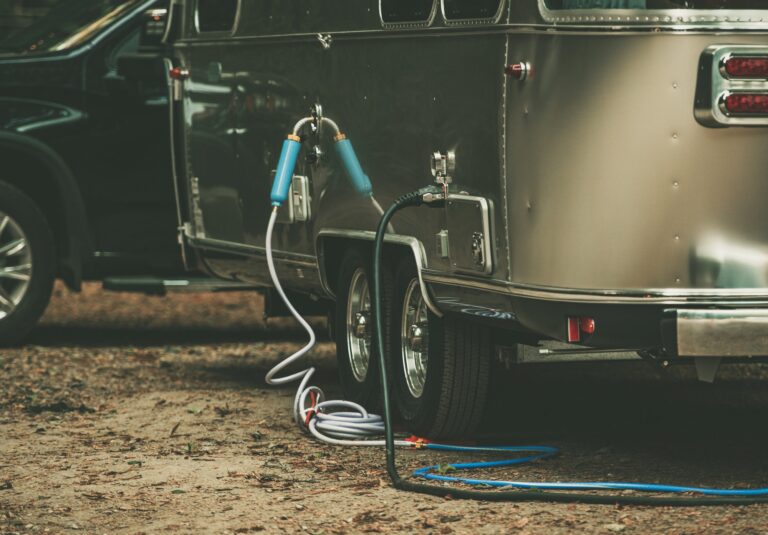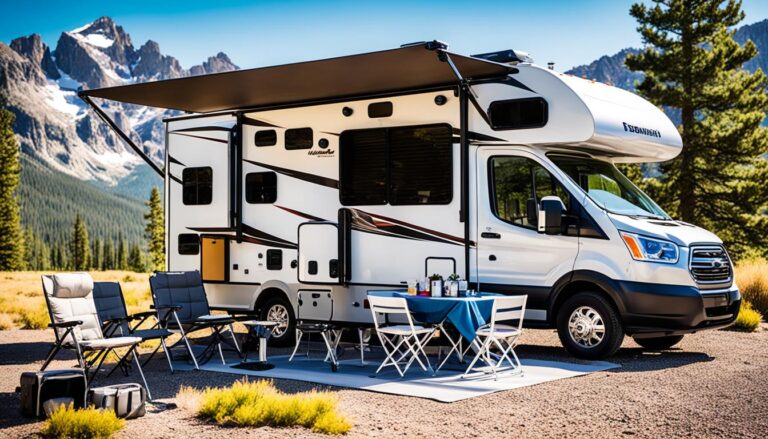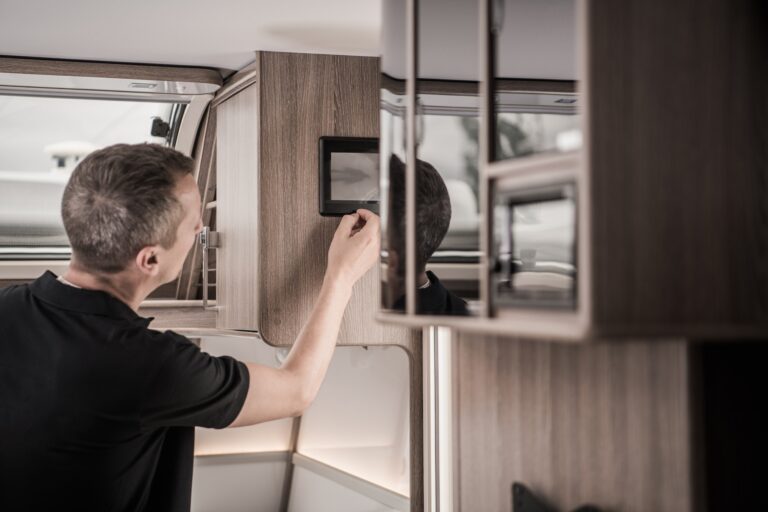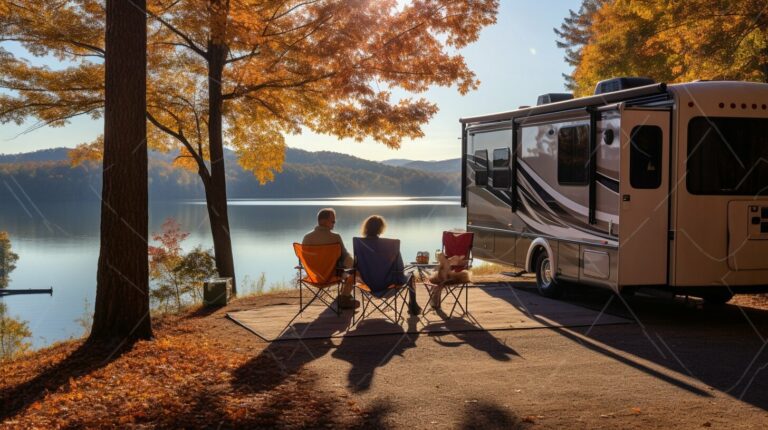The RV lifestyle is an attractive option for many, offering the freedom to explore new places while taking the comforts of home along for the ride. However, the decision to live full-time in an RV, as opposed to using it for occasional trips, can significantly impact the type of RV you should choose. This blog post will delve into the factors you should consider when choosing an RV for full-time versus part-time living.
Full-Time vs. Part-Time RV Living: An Overview
Full-time RV living involves using the RV as your primary residence, whereas part-time RV living refers to using the RV for vacations or occasional trips. The needs and considerations for each lifestyle can vary considerably, affecting the type, size, and features of the RV that will best suit your needs.
Factors to Consider When Choosing an RV
1. Size and Layout
Full-Time Living
When living full-time in an RV, space is a premium commodity. You’ll need enough room to comfortably accommodate all your daily activities, from cooking and eating to sleeping, bathing, and relaxing. Look for an RV with a well-designed layout that maximizes living space, including a functional kitchen, a comfortable sleeping area, and sufficient storage. Class A motorhomes or fifth wheel trailers are popular choices for full-time living due to their larger size and more residential-like amenities.
Part-Time Living
For part-time living or occasional trips, a smaller RV may suffice. A smaller RV is typically easier to drive and park, and it can also save on fuel costs. Consider a Class B motorhome or a travel trailer, which offer compact yet comfortable accommodations suitable for short-term travel.
2. Storage and Cargo Capacity
Full-Time Living
When living on the road full-time, you’ll need ample storage for your belongings, from clothing and personal items to food, kitchenware, and possibly even outdoor gear. Check the RV’s cargo carrying capacity (CCC) to ensure it can handle the weight of all your possessions without exceeding the vehicle’s maximum allowable weight.
Part-Time Living
For part-time RV living, storage needs are usually less. You’ll still need space for travel essentials, but you won’t need to carry all your belongings with you. A smaller RV with less storage might be a more cost-effective and practical option.
3. Durability and Insulation
Full-Time Living
Full-time RV living means your home on wheels will be exposed to various weather conditions, from scorching heat to freezing winters. High-quality construction and good insulation are critical to withstand these conditions and maintain a comfortable living environment.
Part-Time Living
For part-time RV use, durability and insulation are also important, but you may have more flexibility. If you plan your trips around favorable weather conditions, you might not need the highest level of insulation or all-weather features.
4. Maintenance and Repair
Full-Time Living
When your RV is your home, any necessary repairs can be particularly disruptive. Choose a model known for its reliability and durability. Consider the availability of service centers or RV mechanics along your planned route. An RV with a robust warranty can also provide peace of mind.
Part-Time Living
Maintenance and repairs are also a consideration for part-time RV living, but the impact of potential downtime may be less significant. Still, reliability should factor into your decision, and a good warranty is a valuable feature.
5. Budget and Financing
Full-Time Living
Living full-time in an RV can be a significant financial commitment. You’ll need to consider not only the purchase price but also costs like fuel, insurance, maintenance, and campground fees. Financing terms for full-time RVers can differ from those for part-time RVers, so it’s worth researching your options carefully.
Part-Time Living
For part-time use, you might not want to invest as much into your RV, making budget-friendly models more appealing. However, you should still factor in ongoing costs such as storage, maintenance, and insurance.
Key Considerations When Choosing an RV
- Your Lifestyle: Consider how you plan to use your RV. If you plan to travel frequently, a motorhome might be a better choice. If you prefer staying in one location for longer periods, a travel trailer could be more suitable.
- Number of Occupants: The number of people living in the RV can significantly affect your space and layout needs.
- Travel Preferences: Do you prefer urban environments or remote, off-grid locations? This will affect your need for features like larger water tanks or solar power capabilities.
- Personal Comfort: What amenities do you need to feel comfortable? Some people might be happy with basic facilities, while others may want luxury features like a king-size bed or a washer/dryer.
- Resale Value: If you plan to upgrade or change your RV in the future, consider the RV’s resale value. Some brands and models hold their value better than others.
Conclusion
Choosing the right RV for your lifestyle can significantly enhance your enjoyment of life on the road. Whether you’re embracing the freedom of full-time living or looking forward to part-time adventures, take the time to consider your needs, preferences, and budget to find the perfect home on wheels. Happy travels!
Remember, the journey of RV living is a personal one. There’s no one-size-fits-all answer when it comes to choosing the right RV. By considering the factors outlined in this guide, you can make an informed decision that will ensure your RV not only meets your needs but also complements your lifestyle, whether you’re a full-time RVer or a weekend warrior.






